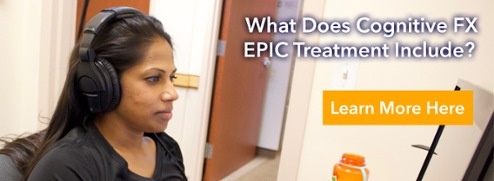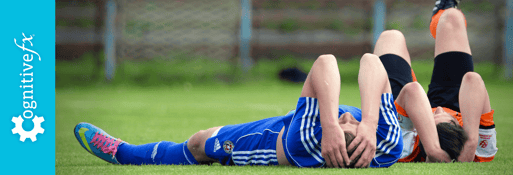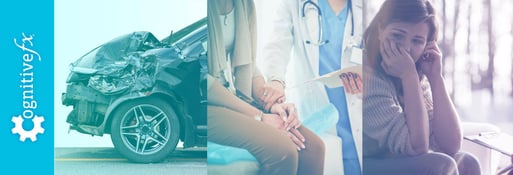A concussion is a result of the head receiving a significant blow or jolt causing the brain to impact with the skull. This sudden movement will cause the brain to bounce or twist in the skull, stretching and damaging brain cells. The severity of a Traumatic Brain Injury (TBI) can range from mild (a short change in consciousness) to severe (a long period of unconsciousness or memory loss after injury).
Most of the TBIs that occur each year are mild, and are commonly called or are diagnosed as a concussion. There can be signs of injury to the head, like bruising or scrapes or cuts, or there may not be any visible injury. A person does not need to pass out or have visible injuries to the head after obtaining a concussion for there to be internal damage.
How is a concussion classified as an mTBI?
It is difficult to diagnose a concussion due to the subjectiveness of concussion symptoms.TBI injury severity uses several different tools. The Glasgow Coma Scale (GCS), a clinical tool designed to determine coma and impaired consciousness. This is one of the most widely used severity scoring systems. People with GCS scores of 3 to 8 are ranked with a severe TBI, persons with scores of 9 to 12 are classified with a moderate TBI, and individuals with scores of 13 to 15 are labeled with an mTBI.
mTBI Symptoms VS Severe TBI Symptoms
A mild TBI can cause a brief change in consciousness, common mild concussion symptoms include:
- Headaches
- Confusion
- Blurry vision
- Irritability
- Dizziness
- Nausea
- Fatigue
A severe TBI that is not fatal can result in an extended period of unconsciousness (coma) or amnesia after the injury. The CDC stated, “for individuals hospitalized after a TBI, 43% have a related disability one year after the injury.” A severe TBI can lead to a range of short or long-term issues impacting:
- Cognitive functions (attention and memory)
- Motor functions (weakness in arms and legs, impaired coordination, and balance)
- Sensations (hearing and vision)
- Emotions (depression, anxiety, aggression, and personality changes)
Leading Causes of mTBI/Concussion
- Falls are the leading cause of TBI. Rates are highest for children aged 0 to 4 years and adults aged 75 years and older.
- Falls result in the highest number of TBI-related emergency room visits 523,043 and hospitalizations 62,334.
- Car accidents–traffic injury is the leading cause of TBI-related death. The highest rates are for adults aged 20 to 24 years.
- TBI is a contributing factor to a third of all injury-related deaths in the United States.
Just Because it is Called mild a Concussion it is still a Brain Injury
When Cognitive FX talks about a mild TBI we are not referring to the impact of the effect it has on your life. We know that a concussion can have a drastic and long-term impact on your life and the quality of your life.
When we use the term mild it is used to classify your brain injury as an injury with no obvious structural brain damage (like a hole in the brain, or a brain bleed) that is the cause of symptoms or needing more severe treatment like brain surgery. A concussion is not typically revealed in standard brain scans like MRI and CT because these scans are designed to identify structural damage. They generally cannot detect the injury caused by mTBI. Injury from mTBI impairs blood flow, Neurovascular Coupling, and other metabolic processes of healthy brain cells.
A concussion is a complex brain injury. The term mild should not imply that the actual damage is mild. Even small changes to the way the brain works can cause big problems in a person’s life. When you have a concussion you can have a healthy and normal appearance (including normal looking MRI or CT brain scans) yet still be suffering from a very complex injury.
At Cognitive FX, our goal is to not only treat concussion symptoms but to bring awareness and provide education to understand the symptoms of a concussion. Regardless of it being called a “mild” injury, we want the world to know that a concussion is a brain injury, and should be taken seriously. If you believe that you or someone you know may be experiencing concussion symptoms, learn more about our treatment and how we help patients find relief from their concussion symptoms.








